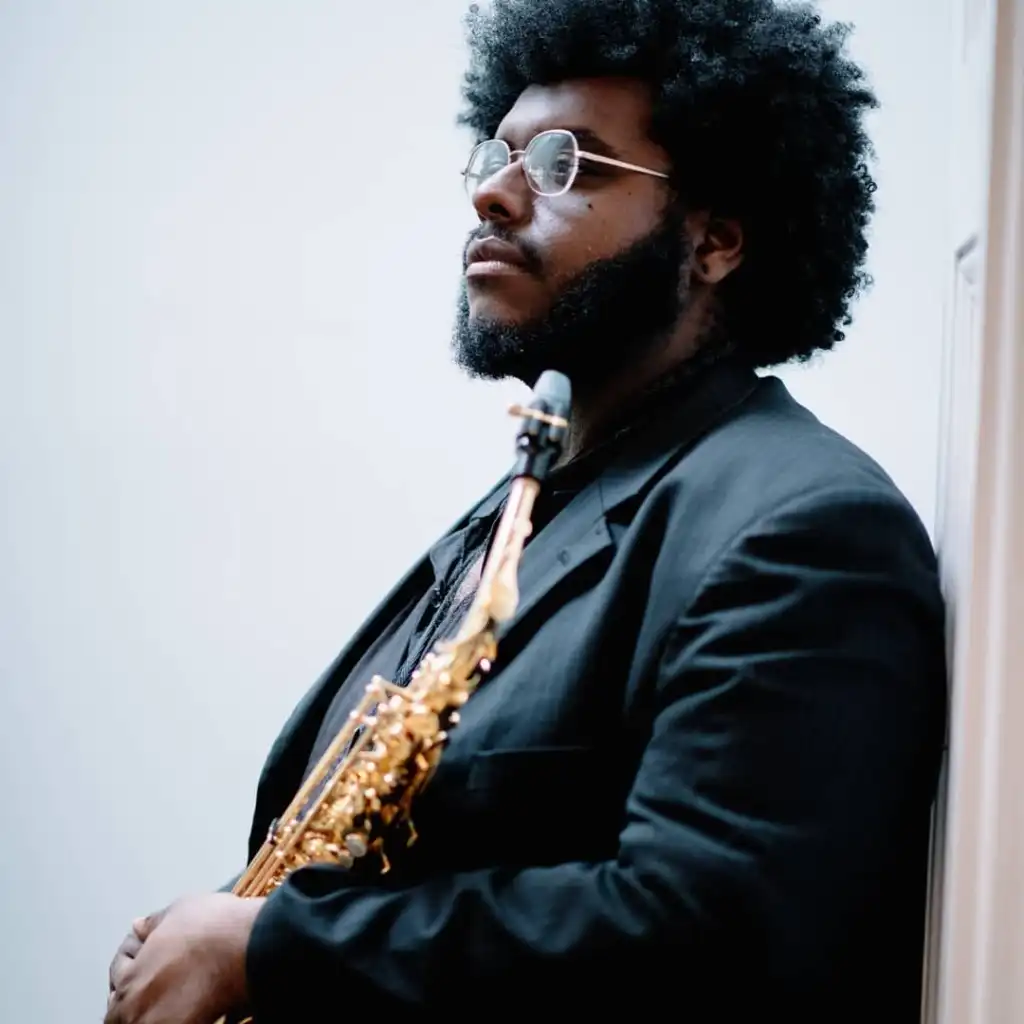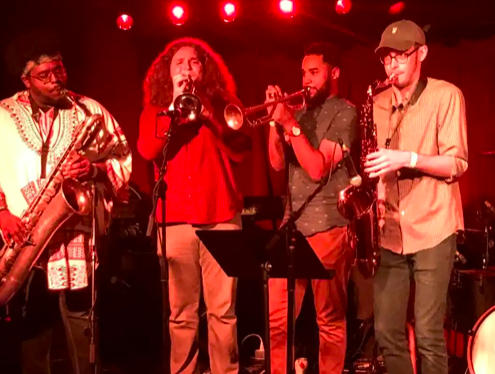By DAVID DUPONT
BG Independent News
When the Hyperius Blake Sound Experiment arrives at Grounds for Thought Sunday, they’ll come ready to deliver not just a big sound, but an expansive sound.
The Cleveland-based band is rooted in the sounds of the African Diaspora, said founder Robin Blake in a recent telephone interview.
This venture dates to his studies at Cleveland State where he designed his own major in the Music of the Diaspora. His senior project asserted that hip hop was an extension of the jazz legacy. Jazz is swung 8th notes while hip hop is swung 16th notes, he said. And his senior recital in 2016 was titled “A Sound Experiment.”
He and his fellow musicians have been making themselves heard since then.
The Hyperius Blake Sound Experiment will perform Sunday, March 26, 6-8 p.m. at Grounds for Thought, 174 S. Main St., Bowling Green. The free show is part of the monthly concert series produced by Dustin Galish of BG Independent News.

The Sound Experiment is a collective that can perform in various alignments. Blake is bringing the full 10-piece ensemble with full horn section, vocalists, and rhythm section to BG.
“We embrace jazz, disco, R‘n’B, and hip hop,” he said. “Those four are our musical sound. They caused major controversy in our country,” he said. “They not only caused controversy but were also mimicked and permeated into the things we have today. Those four genres are our musical sound.”
Blake noted that the recently deceased jazz legend Wayne Shorter urged musicians “to play the universe,” Blake said. “My band is what happens when universes combine: You get super novas.”
They love to combine sounds – country, blues, synth wave, indie rock. “Everything we do is a mash up,” he said.
While he doesn’t take himself seriously, he takes his craft very seriously. That helps him keep a balance in his life.
Beyond the stage, Blake said. “I want to create a community around this band for the weirdos and the people who feel they fall through the cracks.”
The band’s book is half original material and half their own versions of other people’s music. “Every song is a set of chords, a bassline and ornaments on top,” he said. “Once we learn that basic form of a tune, we can play it with our interpretation,” Blake said.
He grew up in Euclid surrounded by music. At 8, he started playing the violin, but when he got to Euclid High, he set music aside, but not for long. The arts were second only to sports in the school’s hierarchy, and he saw all his friends having a great time in band.
So, the first day of band camp in his sophomore year, he showed up and asked what they needed. Blake was handed a saxophone, and by the end of the day he’d learn to play “Hips Don’t Lie.” He participated in as much as he could – bands, school musicals, jazz band, orchestra, and show choir.
Growing up in a place that was 88 percent Black shaped, him, as did being in a large school with a competitive scene. Euclid High had 2,000 students. That meant he was never a big fish in a small pond.
“I didn’t know music could be a valid career path or a college major until my senior year,” Blake said. “I just followed my heart and took the leap to study music in college and see what the music was all about.”
All that continues to manifest itself in Hyperius Blake Sound Experiment.
“I really want to pay respect and homage to the music that has helped shape me as a person,” he said. “The music of the Black Diaspora, that’s American music.”
The influence of those sounds shaped not just the sound of America, but the sound of the world.
“With this band I want to give credit ad respect to those who came before me” and to the social movements that the music created. “I wanted to get together with like-minded people, coming from different places, who wanted to push boundaries and collaborate. In this group all are mostly trained in music, but we have vastly different backgrounds, points of view, and skill sets.”

